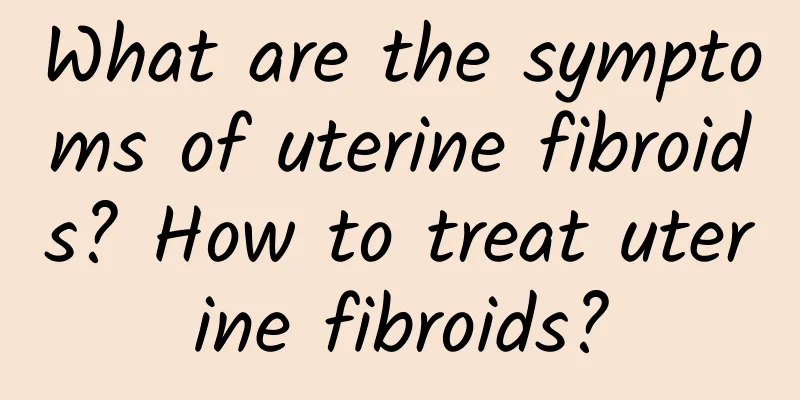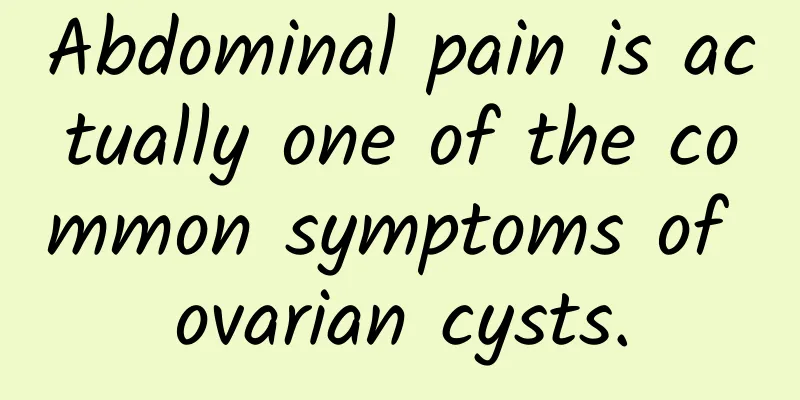What are the symptoms of uterine fibroids? How to treat uterine fibroids?

|
Fibroids may appear in a woman's uterus since the fetal period. Uterine fibroids are a common gynecological disease. According to statistics, about 70% of women over 40 years old will suffer from uterine fibroids. So, what are the symptoms of uterine fibroids? And how to deal with it? 1. Irregular menstruation. Women with uterine fibroids may experience irregular menstruation. Menstruation may become longer or the amount of bleeding may increase. In addition, the menstrual cycle may become shorter or longer. 2. Pelvic pain. Uterine fibroids can cause pelvic pain, which may be accompanied by a feeling of heaviness in the lower abdomen. In some cases, the pain may last for weeks, seriously affecting the patient's quality of life. 3. Frequent and urgent urination. If the uterine fibroids are located near the bladder, they may compress the bladder and cause symptoms of frequent and urgent urination. 4. Bowel movement problems. Uterine fibroids may also be adjacent to the intestines, thereby exerting pressure on the large intestine. This may cause constipation or painful bowel movements. 5. Decreased quality of sex life. Uterine fibroids may also cause pain during sex, thus affecting the sex life of the couple. This may have a certain impact on the relationship between the couple. So, how do we deal with these different symptoms? 1. Observation. For some mild uterine fibroids, the doctor may recommend observation to see if they will expand or worsen. 2. Drug treatment. For some patients, doctors may recommend some drugs to relieve symptoms. These drugs may include oral contraceptives, progesterone, or drugs that can regulate hormone levels. 3. Surgery. For some severe cases, doctors may recommend surgical treatment, such as myomectomy. The surgery can be performed through laparoscopic surgery or traditional resection, depending on the patient's specific situation. The above is a brief introduction to the symptoms and treatment of uterine fibroids. However, each patient's situation is unique, so when facing uterine fibroids, the best way to deal with it is to consult a professional doctor. They will provide the most suitable treatment plan based on the patient's specific situation. Female friends should maintain good living habits, have regular gynecological examinations, detect problems in time and take the right treatment methods to protect their health. |
<<: What to eat for uterine fibroids What to eat for uterine fibroids
>>: What foods can't patients with uterine fibroids eat?
Recommend
How to deal with pelvic effusion after normal delivery
Many women will become particularly bad after pre...
Get rid of the fat and slim down your belly
In the hot summer, I want to wear a bikini and go...
Say goodbye to puffy and bad complexion! Women who love beauty must learn the "first aid method for edema"
Swelling is more annoying than being fat! You hav...
Women should pay attention to the prevention methods of irregular menstruation in their lives
Irregular menstruation is a very harmful disease....
What is the cause of menstrual diarrhea? What to do if you have menstrual diarrhea
Diarrhea during menstruation is mainly caused by ...
Surgery is the first choice for treatment of hyperprolactinemia
Many female friends around us suffer from hyperpr...
Effective remedies for dysmenorrhea
Effective remedies for treating dysmenorrhea: 1. ...
Is chronic cervicitis easy to cure? 4 ways to treat chronic cervicitis
After people find that they have chronic cervicit...
The best treatments for uterine effusion include
In life, everyone should pay attention to their o...
What is the CIN level of chronic cervicitis in women? What is the treatment for chronic cervicitis in women?
If you suffer from chronic cervicitis, you must f...
Too thin to get pregnant? Doctor: Insufficient body fat may lead to ovulation
Many people want to give birth to a dragon baby i...
There are three diseases that cause dysmenorrhea
Dysmenorrhea is a condition that all female frien...
What are the symptoms of recurrence of cervical erosion after surgery?
What are the symptoms of recurrence of cervical e...
What are the symptoms of incomplete medical abortion? See what the doctor says
Incomplete medical abortion can have a great impa...
10-year-old rice Miaoli No. 2 super soft Q
Taiwan has entered an aging society, and the nutr...









